PHOTOGRAPHY KATE NELDER
Roxie and Bev amoungst the herd.
Sign up to our mailing list for the best stories delivered to your inbox.
Roxie, 60, and Bev, 53, are half of a special group known universally to their family and friends as ‘The Sisters’.
WORDS PETA STOCKWELL PHOTOGRAPHY KATE NELDER
Their story began on the lush Atherton Tableland in north Queensland, a far cry from the dusty dry season of the Northern Territory. This is where their mother Val, a nurse, met their father Barry Utley. After getting married in 1957, the couple worked in northern Queensland for nine years before deciding to take their four young daughters on a 1500 kilometre trip to Anthony Lagoon station in the Northern Territory for work. Today, 62-year-old Sheron McDougall, the eldest of the girls, remembers their dad driving the truck and Val following in the Valiant station wagon with the caravan — and the youngest, 14-month-old Bev, standing on the front bench seat by her mother’s side.
What was meant to be a six-month stint on the Barkly Tableland saw the Utleys spend the next seven years working between Anthony Lagoon and Tanumbirini stations, living for some of the time in a 16 foot caravan.
Growing up, Sheron shouldered a lot of the domestic work, looking after her three younger sisters and helping them with their school work. “I remember being kept home from school to look after Bev so Mum could go and work in the cane fields. I would’ve been 10 years old,” she says.
Roxie, who is the second of the girls, loved helping outside. “She was a strong personality. I remember her going exploring, often walking for miles in creek beds. One day she brought back an orphaned brumby foal,” the next sister, 57-year-old Glen Holzwart, recalls fondly.
While the sisters admit there were fights, they were very close and protective of each other. “Life was rather primitive. Looking back, we went without a lot but we didn’t know any better. At one stage we had no meat so we ate topknot pigeons for a week or two. Mum and Dad expected us to work, with schoolwork often the second priority,” Glen reflects.
In the early 1970s the family moved to Sunday Creek station, west of Daly Waters in the Northern Territory, first as fencing contractors, then managers, before buying the property in 1981. The 205,500 hectare block was largely undeveloped, so they began building from the ground up. “Once we moved out of the caravan and into a house on the station we started collecting as many pets as we could. At one point Bev had a brood of ducklings convinced she was the mother duck, and I tried to ride every horse I could, tame or feral,” Roxie recalls.
As the girls grew up, they in turn began to leave Sunday Creek to explore the world. Sheron was the first to go, leaving to join the Navy in 1977. She says the idea of an ordered, structured environment was appealing. Roxie was next, venturing to central Queensland in 1979 to work on stations. “What a shock!” she says. “I had been very sheltered. It was a giant learning experience, but I loved the challenge.”
“I needed to leave home and spread my wings but I felt bad that Bev was left with the responsibility of helping our parents. For years I felt guilty I wasn’t there during the tough times.”
Despite the vast distances and lack of communication services, the sisters kept in contact through letters and the occasional visit. “It was hard when Sheron and Rox left because we didn’t have a phone,” says Bev. “I remember organising that they would ring the Hi-Way Inn [a roadhouse 35 kilometres away in Daly Waters] at a certain time so we could talk to them.”
Roxie returned to the Territory for a visit in 1987 and discovered Sunday Creek station was being subdivided. “The Territory was, and is, a place where opportunity knocks. Owning a chunk of virgin land with no improvements sounded like a great idea, and we bought Avago in December 1987.”
Roxie and Keith made the first improvements while still living in Emerald, before making the move with their young family in 1995. “It took me a while to accept I would never again own a clean car, or clean kids for that matter! I can’t remember whose great idea it was to give up a well-paid job and a nice house to move the family somewhere with no schooling or medical services,” Roxie jokes. “It’s entirely different living in the bush as a child with no responsibilities, to being responsible for schooling three kids plus cooking and working in the paddock.”
Meanwhile, Bev and her husband Tom bought what remained of Sunday Creek in 1994. After seeing the challenges faced by her parents, Bev admits taking on the home block was an intimidating prospect: “Perhaps the arrogance of youth made me think I could see my parents’ mistakes and avoid the same traps.”
Roxie and Keith had a bare block with no fences, homestead or water. They planned to move into a caravan, but Tom and Bev offered them the Sunday Creek homestead to live in.
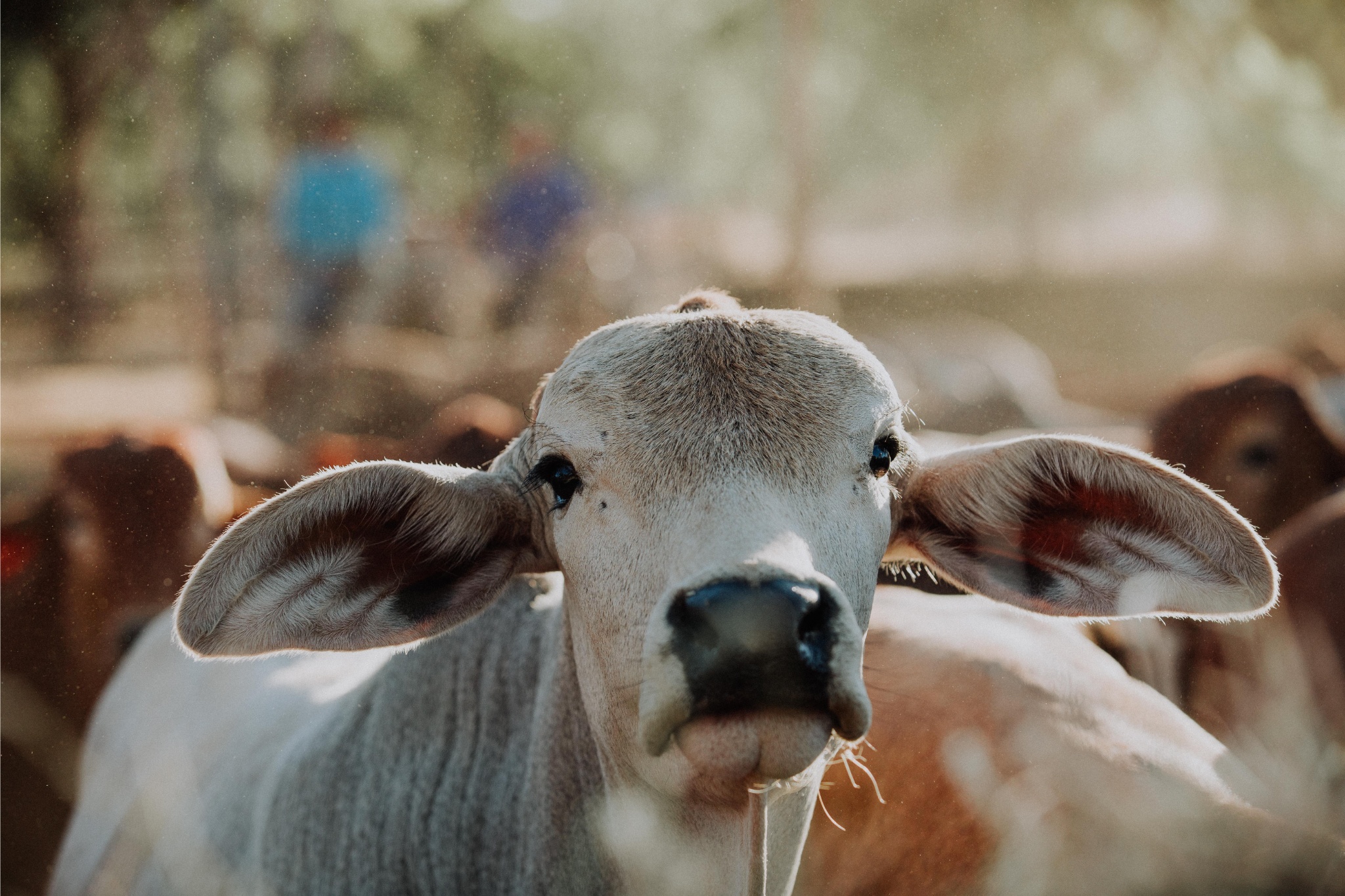
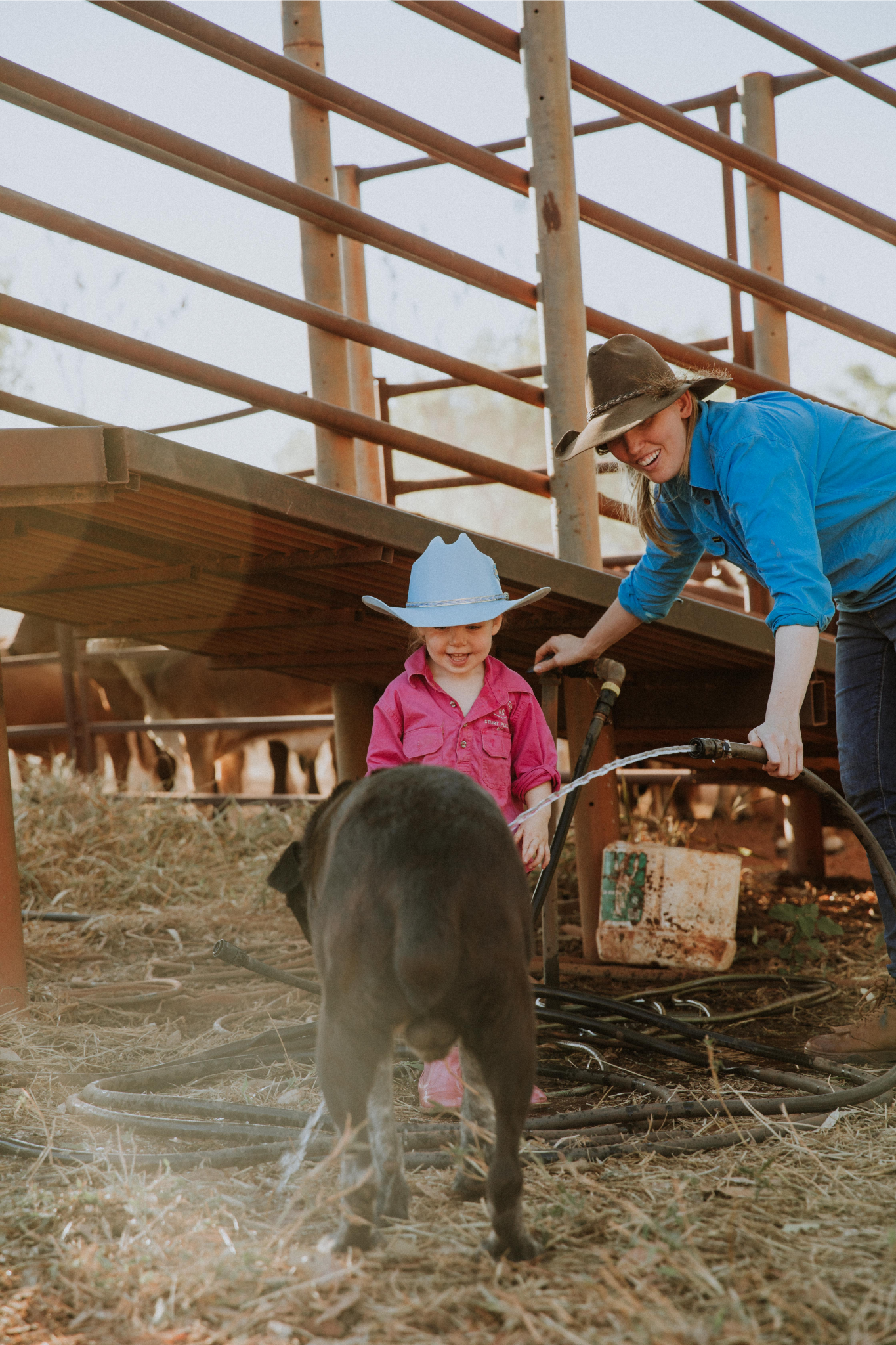
“We’re all self-starters. We never had the chance to shine academically, but our work ethic and time management has shaped who we are today,” she says. “The bush teaches you most of life’s lessons and helps you enjoy the simple pleasures.”
For the first five years, Bev lived at Sunday Creek during the week while Tom continued to work in Katherine, some 300 kilometres away. “I suppose it was tough at times but I wasn’t really alone because Rox and Keith were there, ready to rescue me if I got stuck. I remember leaving our eldest, Peta, in a bouncer in the shade of the car while I worked weaners and Rox drove past and kidnapped her back to her place. It was great for me. I was quite sad when they moved,” she says.
By 2001 there was a bore, a shed and a few fences at the top of a spinifex hill on which the Avago homestead would be built, so Roxie and Keith left the “company and comfort” of Sunday Creek. While there were no birds or wildlife, Roxie recalls there being plenty of insects. “Termites promptly ate my plants that I had lovingly brought from Queensland and nourished all those years.” Twenty-five years later, Roxie says Avago has come of age, describing it as “the jewel in our crown”. “I’ve finally managed to get the gardens ahead of the termites and wildlife, who still think I grow it for their benefit. The wonderful thing is we are never bored, which is also the downfall: there is always something that needs doing!”
Fast-forward to the present and the sisters are as close as ever, despite the distance. Letters have been replaced by phone calls, Facebook messages and even Snapchat, but the opportunity to get together is always a highlight. Roxie and Bev are on the stations, Sheron lives in Cairns working for Queensland Rugby League, and Glen lives in Brisbane where she owns and runs several Red Rooster franchises.
Living alongside each other, Roxie and Bev’s days are very similar. “Having a kindred spirit makes the world of difference. Even when things are flat out, I know Bev is there,” Roxie says. “It’s wonderful to have a friend who understands and has my best interests at heart. Even when she tells me that something is my fault, she does it well,” Bev agrees. “One would think we’d see each other a lot, but one half of the year is too wet, the other too busy! We talk a lot and get together to share plants, books, music.”
All four sisters have achieved success professionally and personally, which Glen suggests is thanks to their upbringing. “We’re all self-starters. We never had the chance to shine academically, but our work ethic and time management has shaped who we are today,” she says. “The bush teaches you most of life’s lessons and helps you enjoy the simple pleasures.”
The strength of the sisters’ friendship has also been a blessing for the next generation. “Our childhood helped us rear our own children with these same values and a strong connection to family,” Glen adds. “I believe we built this deep friendship because we didn’t have friends nearby. When we get together now we still have the same warped sense of humour, none of us are hung up on material things and we still share the same values.”
“I know how privileged I am to have them,” adds Bev. “It builds confidence to have a ready-made support group. There’s a group of awesome, accomplished women who also think I’m great. Maybe I’m braver and better because I follow their example.” Sheron agrees, describing it as “a safety net” knowing there is always someone to connect with. “We’ve all taken different paths, but when we get together it’s comfortable, if a bit crazy!”
Underpinning the love and support shared by the sisters is the example set by their late mother Val. “When Mum was alive I knew she would always be in my corner, always there to listen without judgement. Now my sisters and I have each other, not always together, but always there,” Roxie says fondly.
Subscribe to Graziher and never miss an issue of your favourite magazine! Already a subscriber? You can gift a subscription to someone special in your life.
To hear more extraordinary stories about women living in rural and regional Australia, listen to our podcast Life on the Land on Apple Podcasts, Spotify and all major podcast platforms.
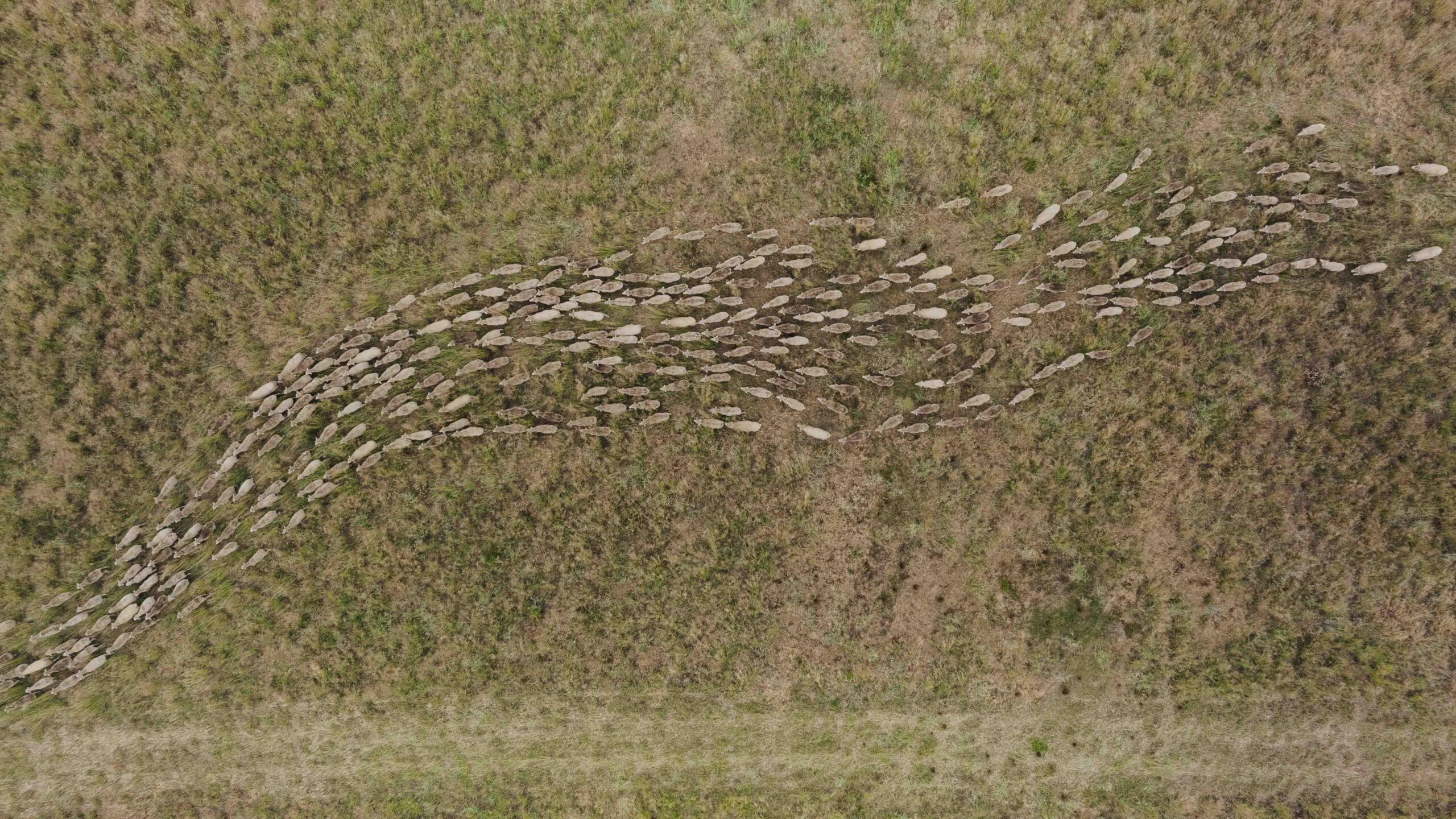
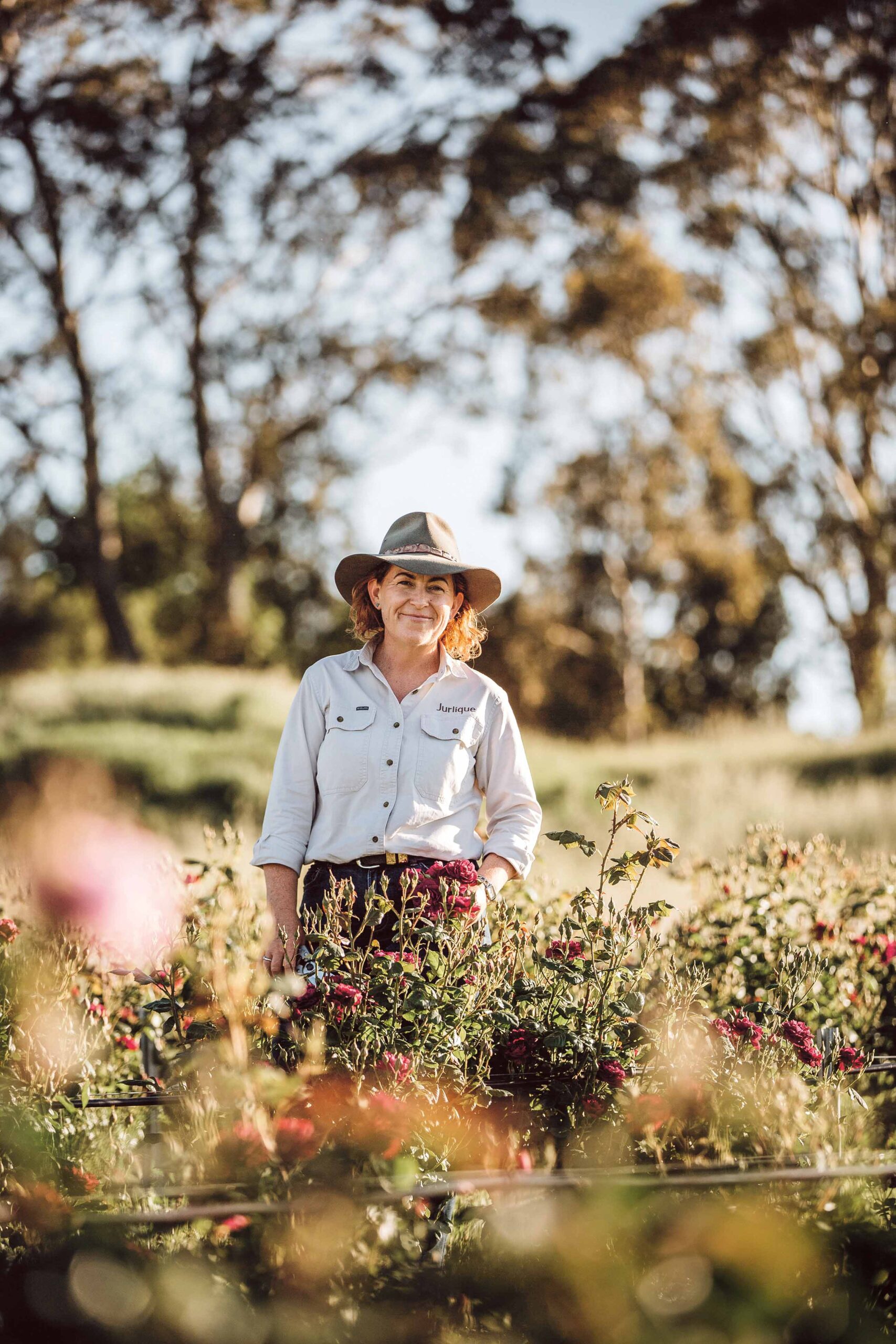
Raised on a dairy farm near Hahndorf, SA, farm manager Cherie Hutchinson has a deep love for the land she works on.
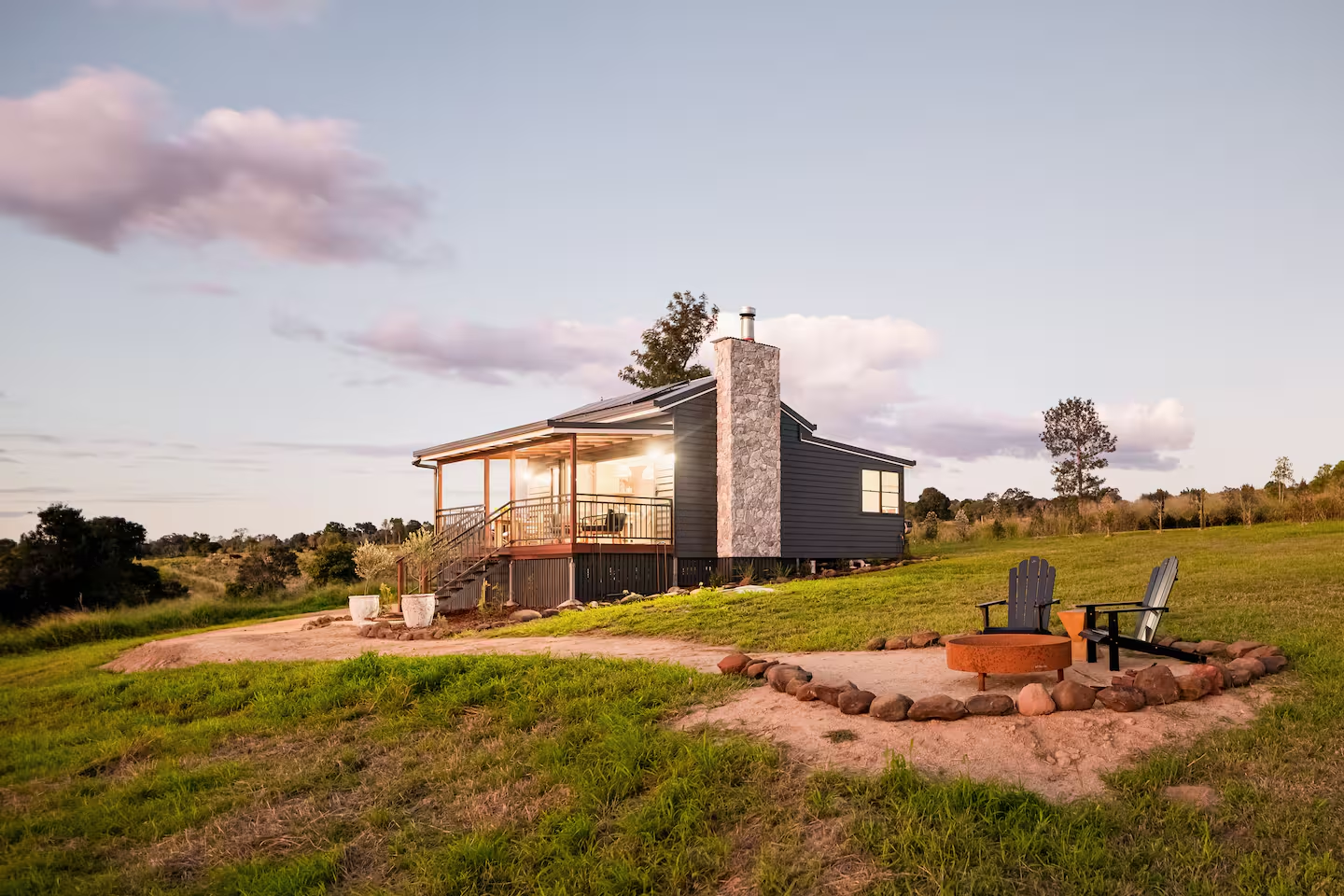
If you like the idea of a private plunge pool, mountain views and a glass of local verdelho, it’s time to start planning your Firebreak Farm escape.